More Americans than ever are worried about home security. From burglaries to home invasions to protecting kids and pets, people want to make sure their houses are safe havens. An often-overlooked aspect of home security is fencing. A strong perimeter fence acts as a crucial first line of defense around your property. Not only does fencing deter would-be intruders, but it also prevents kids and pets from wandering into harm's way. This article will explore how you can boost home security through proper fencing installation and maintenance. We'll look at ideal fence heights, materials, accessories, costs, and upkeep. A high-quality, well-maintained fence will provide peace of mind and let you rest easy knowing your house and family are protected.
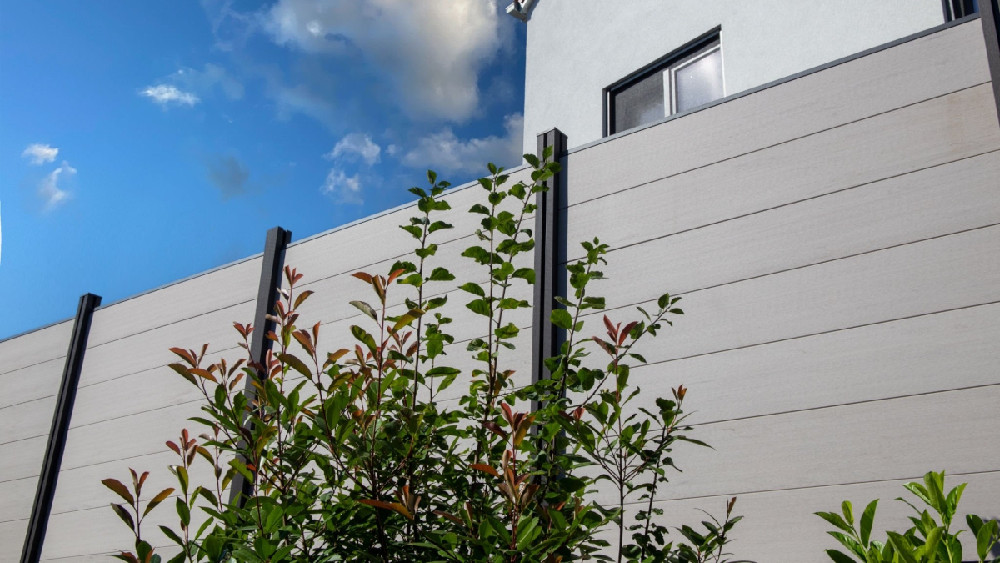
Installing a tall fence is one of the most effective ways to enhance home security. Experts recommend a fence height of 6-8 feet tall for optimal protection. A fence of this size creates a daunting barrier that will deter most intruders from attempting to enter the property.
The added height makes it extremely difficult for trespassers to climb over or force their way through. Unlike a short decorative fence, a tall privacy fence fully obstructs the view into the yard and home. This prevents potential thieves from casing the home and yard for vulnerabilities and valuables.
The height also provides an extra layer of privacy from peering eyes. Neighbors, passersby, and prowlers will not be able to easily see into the yard or gain views into windows. This reduces opportunities for break-ins and thefts when residents are away.
With a fence that is 6 feet or taller, intruders cannot simply reach over to unlock gates or manipulate latches. The elevated height adds crucial extra steps to any unwanted entry attempt. This increases the risk of getting caught in the act, forcing criminals to abandon their plans.
For homeowners concerned about security, installing the tallest allowed fence is a strategic investment. The visible barrier of a 6-8 foot tall fence acts as a prominent warning sign to stay out. This simple addition greatly enhances safety, security, and peace of mind.
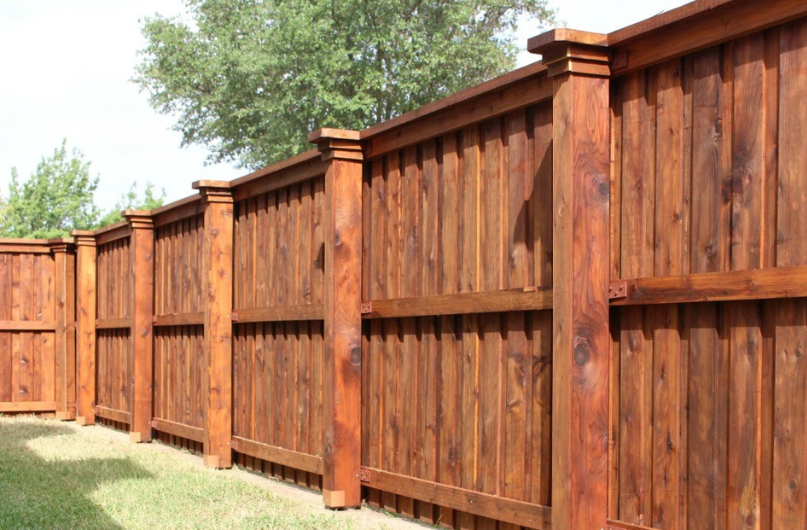
When selecting a material for your new fence, there are several factors to consider:
Wood fences are a classic choice that provide both beauty and privacy. However, they do require fairly frequent maintenance to keep them looking their best.
Pros:
Cons:
Cedar and redwood are preferred woods for fencing because they resist rot naturally. Avoid woods like pine that deteriorate more quickly.
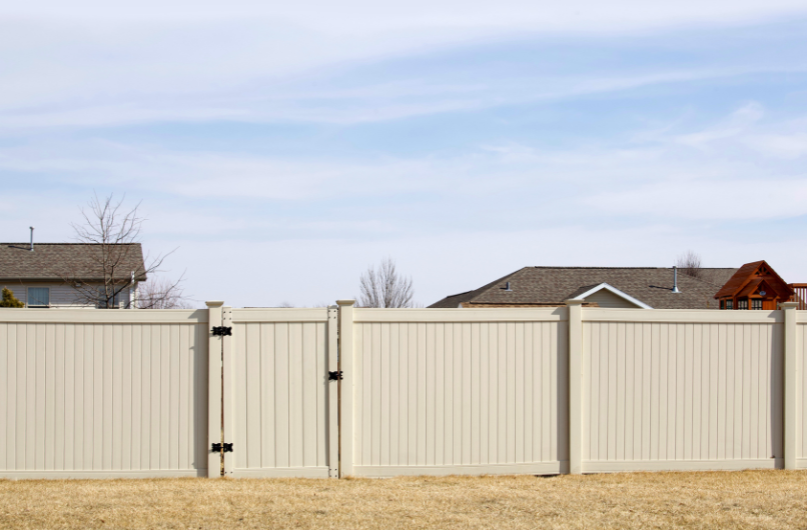
For a lower maintenance option, vinyl is a top choice, though the look is not for everyone.
Pros:
Cons:
Vinyl is best for homeowners who prioritize durability and low-maintenance over appearance.
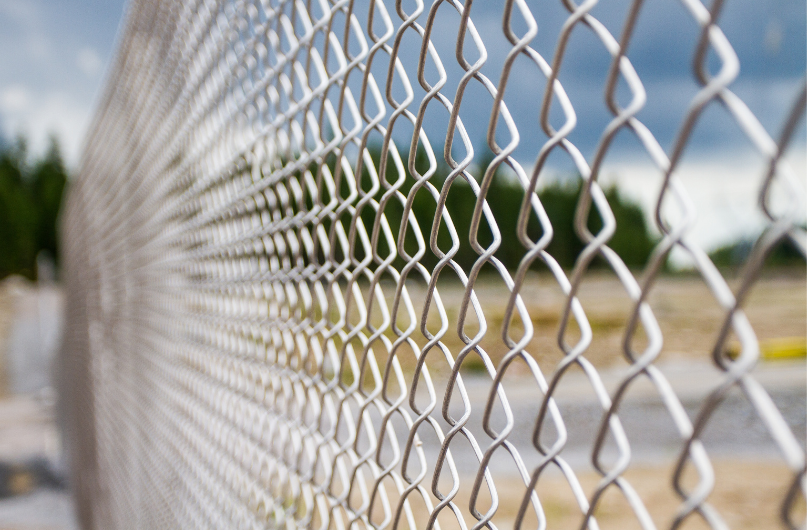
While it lacks aesthetic appeal, chain link fencing is an affordable option commonly used for backyards or perimeter fencing.
Pros:
Cons:
Overall, chain link fencing is best for budget-focused applications where style and privacy are not important factors.
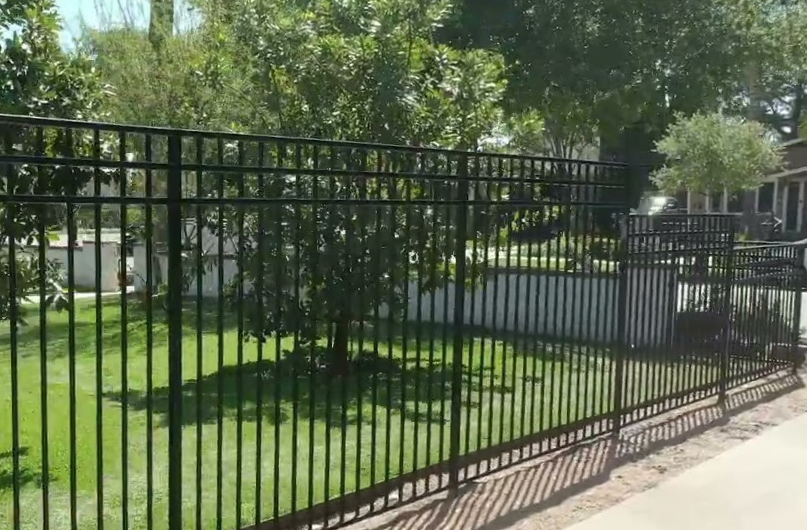
For an elegant, decorative look, wrought iron and aluminum are interesting choices.
Pros:
Cons:
Wrought iron suits homeowners wanting a visually striking, decorative statement fence that provides security. Aluminum is preferable in coastal areas where iron would rust.
When selecting your fencing material, weigh your priorities like budget, durability, privacy and aesthetic appeal. Think about long-term maintenance as well. The right fence material will enhance your home's curb appeal and security for years to come.
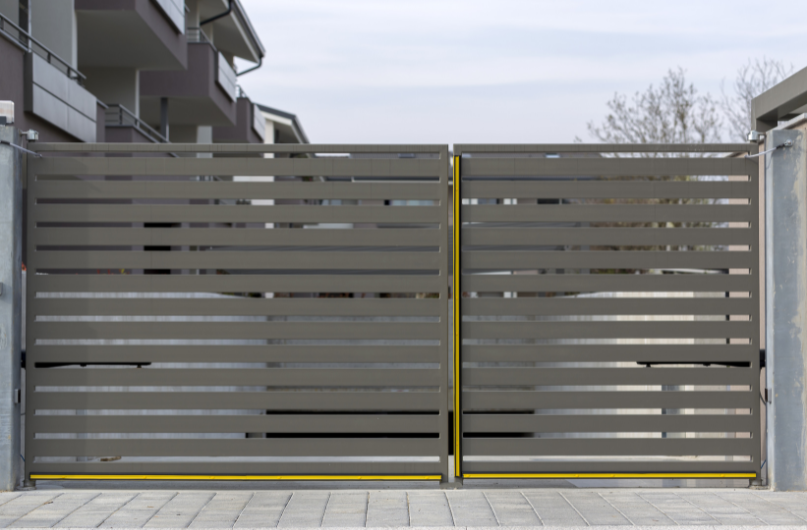
Gates are a crucial part of any security fence. While a tall, sturdy fence can keep intruders from easily entering your yard, a weak or poorly installed gate creates an easy access point. When choosing gates, consider the following:
Automatic gate openers use remotes, keypads, or apps to open and close your gates for you. This adds convenience as you don't need to get out of your car to unlock the gate by hand. Automatic openers include:
Choosing secure gate locks and considering automatic openers gives you control over who can access your property through the gates. Proper installation also ensures your gates cannot be easily lifted off their hinges or otherwise compromised. This keeps your home's perimeter secure.
Adding extra security features to your fencing can further enhance the protection of your property. Some popular add-ons include:
Running a strand or two of barbed wire along the top of a fence makes it much harder to scale or cut through. The sharp barbs deter would-be trespassers from attempting to climb over. Barbed wire sends a clear message that your fence line is not to be crossed.
When installing barbed wire, be sure to check local regulations first. Many neighborhoods prohibit or restrict barbed wire fencing due to safety concerns. Proper installation is also key - the barbed wire should angle outwards at a 45 degree slope to prevent injury to passersby.
Electric fencing gives a non-lethal but memorable shock to anyone touching it. It's an effective psychological deterrent, even if the actual electrical jolt is mild. Electric fences require a bit more expertise to install, but work well alongside traditional fencing.
The biggest drawback is that electric fencing can accidentally harm unintended targets like wildlife or neighborhood pets. It's best suited to large, rural properties. Safety precautions like warning signs should be used.
Installing security cameras that view your fence line allows any breaches to be recorded and deters criminals who don't want to be identified. Look for cameras with night vision, motion activation, and remote access via your smartphone.
Position cameras to capture images of both sides of gates and any vulnerable areas in the fence. Avoid blind spots in the coverage. Use tamper-resistant mounts and housings to prevent sabotage.
With the right additional security options, your fencing can become an even greater asset for protecting your home. Work with a professional fencing company to determine the best supplements based on your property layout and security needs.
Installing a secure, high-quality fence requires skills and experience that you may lack. Doing it yourself might seem cost-effective at first, but the end result can potentially turn into a security risk with gaps, weak points, and other flaws.
For those of you seeking professional expertise for a hassle-free installation, we at Secure Fence are the ideal choice. We offer comprehensive services such as Chain Link, Privacy, Vinyl, Garden, Wood, Aluminum, Pool Fence, and even Fence Repairs, all provided nationwide. Our experienced contractors skillfully carry out every installation with the utmost professionalism.
We pay detailed attention to aspects that can often be overlooked in a DIY project. For robust security fences, it's crucial to consider details like post spacing, hole depth, gate hardware, and picket connections - all of which are carefully handled by our professionals at Secure Fence Company. We don't just install fences; we evaluate your property and strategically install a defense optimized for security - an investment that results in a secure barrier, minimal gaps, and no security defects.
One of the factors that distinguishes us at Secure Fence Company is our use of premium materials for all our fencing solutions. Our commitment to quality not only enhances the durability and aesthetic appeal of your fence but ensures longevity, keeping your property secure for many years.
Moreover, as a reputable professional fence company, we stand by our work and offer professional repair services. Should any issues arise with the integrity or security of your fence, our experienced contractors are one call away to swiftly rectify those problems, ensuring your fence remains in top condition.
In summary, choosing our skilled fencing experts at Secure Fence Company for your project provides not just a superior fence, but also the assurance and peace of mind that your investment is well-protected, secure, and made to stand the test of time.
Installing a new fence on your property requires researching and understanding the local permitting laws and HOA regulations. Failing to get proper permits or follow guidelines can lead to big headaches down the road.
Most cities and municipalities have laws regarding the allowed height, location, and materials for fencing on private property. Exceeding the legal height limit may require a special permit. Some areas restrict certain materials like barbed wire. And there are often rules about keeping clear sight lines near intersections and driveways. Check with your local permitting office to learn about the specific fencing height, setbacks, and material regulations for your property. These laws are in place for safety and aesthetic reasons.
If you live in a neighborhood with a HOA, they likely have a set of standards that fencing projects must comply with. This may include restrictions on styles and materials. For example, a HOA may prohibit chain link fencing and require wood privacy fences. Colors may also be mandated. Any plans for a new fence absolutely must be cleared through the HOA before starting installation. Expect to submit documentation with dimensions, materials, colors, and placement on the property. If their requirements conflict with local laws, you'll need to find compromise solutions. Gaining HOA approval is critical to avoiding headaches after installing your new security fence.
Knowing the legal and HOA parameters before starting a fencing project enables avoiding potentially costly mistakes. Take the time to thoroughly research the rules and regulations in your area. Getting the proper permits can take time, so file paperwork early in the planning process. With diligence on the regulatory requirements, you can design a beautiful new fence that boosts your home's security within the guidelines.
Installing a new fence can be a significant investment, but it's one that pays off in enhanced security and privacy for your property. When budgeting for a new fence, there are several factors that impact overall pricing:
When weighing fence ideas, consider lifetime costs and ROI. A higher upfront investment in durable, low-maintenance fencing can save money over replacing cheaper fencing repeatedly. The security and peace of mind a quality fence provides makes the investment worthwhile for most homeowners. Carefully evaluate bids and materials to find the right fencing solution at the best price for your home.
Keeping your fence in good working order through regular maintenance helps ensure it continues providing security for your home. Check for any issues with your fence at least twice per year - once in the spring and again in the fall. Make a walk around the perimeter and look for:
Be proactive about repairs to any issues you find. A broken board or leaning post quickly leads to more significant problems if left unaddressed. Keeping your fence well-maintained ensures it continues providing that vital protective barrier around your property.
Installing a quality fence around your property is one of the best ways to boost home security. As discussed throughout this article, factors like height, material, gates, and professional installation all play an important role.
To quickly summarize, taller fences around 6 feet high make climbing difficult and prevent intruders from seeing into your yard. Wood, vinyl, iron, and brick are top choices for long-lasting, durable fencing materials that also enhance aesthetics. Secure, self-closing gates with modern keyless entry systems add convenience while preventing unauthorized access.
Beyond the fence itself, motion sensor security lights, security cameras, and alarm systems can provide additional layers of protection. With the right combination of fencing and technology, you can create a safe and secure environment for your home.
If you're considering a new fence installation or upgrade, be sure to check local regulations and permits. Work with a reputable, licensed fencing contractor for proper installation. While fencing projects require an investment, the boost to home security and peace of mind is invaluable.